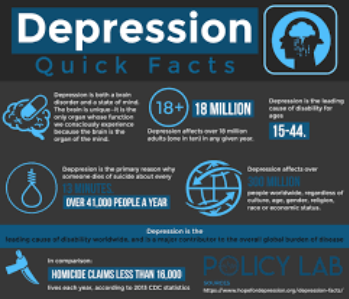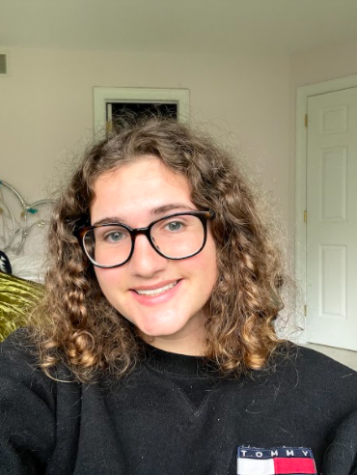Tips on How to Recognize and Help Depression
This year has been hard for everyone, making now one of the most important times to take care of your mental health. Although it is not recommended to self-diagnose yourself with any mental health issue, it is important to seek help if you are struggling. About 20% of teens experience depression or symptoms of depression before adulthood. Completing a mental health check on yourself and your friends is a great way to keep yourself happy and healthy. Listed below are common symptoms of depression, if you or a loved one suffers from any of these don’t be afraid to ask for help from a teacher, guidance counselor, parent, or even friend.
Symptoms of depression:
- seem sad or emotional
- appear more pessimistic than usual or hopeless about the future
- talk about feeling guilty, empty, or worthless
- seem less interested in spending time together or communicate less frequently than they normally would
- get upset easily or are unusually irritable
- have less energy, move slowly, or seem generally listless
- have less interest in their appearance than usual or neglect basic hygiene, such as showering and brushing their teeth
- have trouble sleeping or sleep much more than usual
- careless

Image from Wikimedia Commons about their usual activities and interests
- seem forgetful or have trouble concentrating or deciding on things
- eat more or less than usual
- talk about death or suicide (1)
If you know someone who is suffering from depression try your best to listen to them and help find them support. The more people someone has to help them overcome their mental health the better. If you are not medically qualified, do not try to give advice or fix their problems. Seek help from someone who is trained to handle situations like these and try your best to be there for your friends emotionally. The most important thing to keep in mind while talking to a person battling a mental illness is to be patient and realize that this is very hard for them. (2)
Suicide hotline-800-273-8255
Additional resources at PHS if you are feeling depressed:
- Speaking to your Guidance Counselor
- Speaking to a School Psychologist
- Student Assistance Program (SAP) referral
- Program referral (a therapeutic program through St. Luke’s that is new to PHS this year)
- Make a Safe2Say referral for yourself
Additional options if you are concerned a friend is dealing with depression:
- Speaking to your Guidance Counselor or School Psychologist regarding your friend
- Making a referral to SAP for your friend
- Make a Safe2Say referral
Work Cited
- Legg PhD., Timothy. “How to Help a Depressed Friend.” Healthline, 29 May 2019,
www.healthline.com/health/how-to-help-a-depressed-friend#take-care-of-yourself.
Accessed 22 Nov. 2020.
- “What to Say When Someone Is Depressed.” VeryWellMind, www.verywellmind.com/
what-to-say-when-someone-is-depressed-1067474. Accessed 1 Dec. 2020.
Your donation will support the student journalists of Parkland High School. Your contribution will allow us to purchase equipment and cover our annual website hosting and printing costs.

Abby is a senior and it is her third year at the Parkland Trumpet. She enjoys writing about current events in the school and entertainment...










